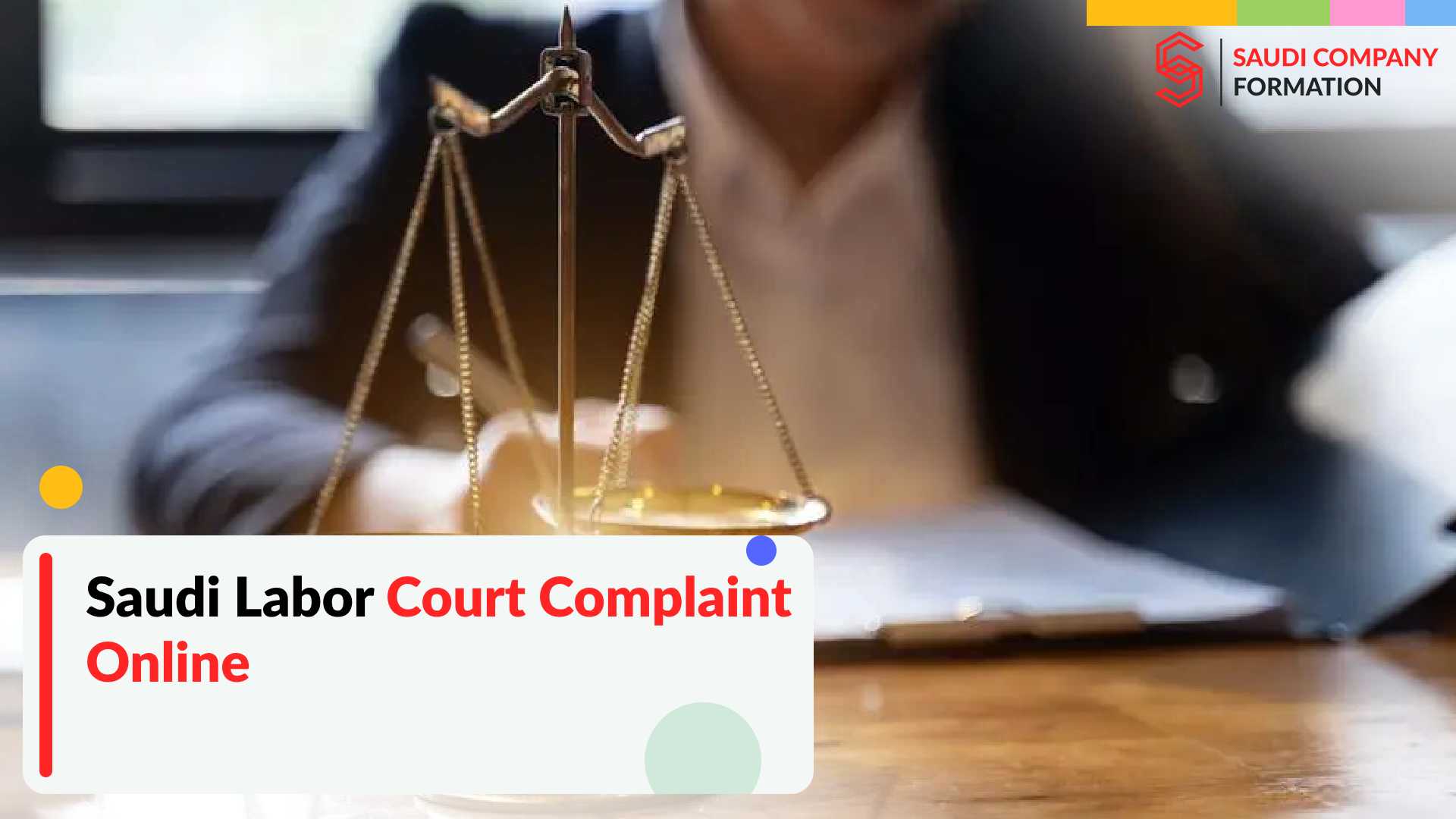In the saudi labor law article 81 is a fundamental provision in Saudi Arabian labor law. This clause emphasizes the importance of protecting the rights of workers in various situations, ensuring that they are not victims of unfair labor practices.
In this article, we will dive deep into the details of what is article 81 labor law ksa. Breaking down each of the seven scenarios it presents and how they impact an employee’s work life in Saudi Arabia.
Article 81 (1): No Salary
The first scenario, addressed by Saudi labor law article 81 relates to non-payment of wages by the employer. This is one of the main reasons why an employee might consider resignation saudi labor law. The law supports him in this decision. If an employer does not pay a salary for work done, the employee can terminate the employment relationship without notice.
This clause does not apply only to the non-payment of wages. But if an employer is unable to provide an Iqama, to the employee, the latter may also consider saudi labor law resignation. The Iqama is crucial for any foreign worker in Saudi Arabia. Also, it validates their stay and employment in the country.
What makes this provision even more significant is the fact that, in such circumstances, the employee has the right to transfer sponsorship without the permission of the Kafeel. It means an employer cannot tie an employee to a situation where the employer does not meet his obligations. Instead, he is free to seek other employment and transfer his sponsorship. This ensuring his welfare and security in the country.
Article 81 (2): Fraud
Labor fraud is a serious concern and, unfortunately, is not uncommon in many work environments around the world. Saudi labor law article 81 specifically addresses this problem in its second scenario. If an employer has committed fraud in relation to working conditions and circumstances at the time of hiring, the employee has the right to resigning from job in saudi arabia without notice.
Imagine being hired under the promise of certain working conditions, only to discover that the reality is very different. It could be in terms of the nature of the work, the hours of work. The facilities provided or any other crucial aspect of the job. In such situations, the employee not only feels betrayed, but may also face unanticipated difficulties and challenges.
Saudi labor law article 81 protects employees from such deceptive practices. If an employee discovers that he has been a victim of fraud by his employer. Especially during the probationary period, he has the right to resign without facing penalties. This clause requires employers to be transparent and honest from the start and prevents them from trapping employees in jobs that break promises.
In addition, it is essential that employees are informed and aware of their rights. In this way, they can make informed decisions and protect themselves against unscrupulous employers.
Article 81 (3): Assign on a different job.
Clarity on the nature of the work is essential for both the employer and the employee. However, there are occasions when an employer may require an employee to perform tasks that were not initially agreed upon. Saudi labor law article 81 addresses this problem in its third scenario.
So, if an employer assigns a worker to perform work that is essentially different from that agreed upon without the employee’s consent, the employee has the right to quit without notice. For instance, if a company hires someone as an accountant but asks them to work as a security guard. The job’s expectations and realities clearly do not match.
Article 60 of the Saudi Labor Law provides that an employer may designate an employee to perform a task that is substantially different from his or her job for a period of 30 days per year. However, this should not be a regular practice and should be in exceptional circumstances. Also, Article 38 states that an employer cannot assign an expatriate to a profession different from the one on their Iqama or work permit.
These rules, prevent the exploitation of employees and ensure they do the work specified in their contracts. They also make sure employees understand their roles and prevent employers from assigning unwanted tasks without employee consent.
Article 81 (4): Violent or Immoral Act
Employee safety and welfare are paramount in any work environment. Saudi labor law article 81 recognizes the importance of this aspect. It provides specific protections for employees in its fourth scenario.
So, if the employer, a member of his family or the manager in charge commits a violent or immoral act against the employee or any of his family members, the employee has the right to resign without notice. These actions can range from physical or verbal harassment to more serious acts that threaten the employee’s safety.
No employee should feel unsafe or threatened in the workplace. The inclusion of this clause in Saudi labor law underscores the importance of maintaining a safe and respectful work environment for all. Employers who fail to uphold these basic principles of decency and respect may face legal consequences.
It is essential that, employees are aware of their rights in this regard and take appropriate action if they face such situations. The law is on their side and provides the necessary protections to ensure their safety and well-being.
Article 81 (5): Cruel or Insulting Behavior
Mutual respect is the foundation of any healthy working relationship. However, there are situations in which employees may face cruel or insulting behavior from their employers or representatives. Saudi labor law article 81 provides protection in such circumstances.
So, if the behavior of the employer or any of its representatives is characterized by cruelty, injustice or insult, the employee has the right to resign without notice. These behaviors can present themselves in a variety of types. From derogatory and humiliating remarks to actions that undermine the employee’s dignity and self-esteem.
It is essential that employees feel valued and respected in the workplace. A toxic environment not only affects employee morale and well-being but can also have a negative impact on work productivity and efficiency. Employers should be aware of the importance of maintaining a positive work environment. Take steps to prevent or address any form of unkind or insulting behavior.
Employees in these situations should know their rights and the protective measures available to them. The Saudi labor law aims to shield employees and ensure their respectful and dignified treatment.
Article 81 (6): Health and Safety Hazard
Health and safety in the workplace are essential to ensure that employees can perform their duties effectively and without risk. Saudi labor law article 81 specifically addresses health and safety hazards in its sixth scenario.
If a workplace threatens an employee’s safety or health and the employer does not address the issue after notification, the employee can resign without notice. These hazards can range from unhealthy working conditions, such as exposure to toxic chemicals, to structural problems in the workplace that could cause injury.
It is the employer’s responsibility to ensure that the work environment is safe for all employees. If an employee feels that his or her health or safety is at risk and the employer does not take adequate measures to address the problem, Saudi labor law article 81 provides a way out for the employee.
It is crucial that, employees are aware of their rights in this regard and take appropriate action if they face such situations. Employers must not compromise health and safety, and the Saudi labor law has measures to maintain employee well-being.
Article 81 (7): Violation of the Contract
The labor contract is a binding agreement between the employer and employee, and both parties must adhere to its terms. Saudi labor law article 81 highlights the importance of this agreement in its seventh scenario.
If the employer violates the terms of the contract or acts in a manner that makes the employee appear to be the party terminating the contract, the employee has the right to resign without notice. These violations can manifest themselves in a variety of ways. From failing to provide agreed-upon benefits to unilaterally changing working conditions without the employee’s consent.
For instance, it is a violation if an employer relocates an employee without consent or alters work conditions not agreed upon in the contract. In such circumstances, the employee not only feels betrayed, but may also face additional hardship due to these unwanted changes.
Employers should honor agreements and collaborate with employees to maintain a good work relationship. So, employees should be informed of their rights and the actions they can take if they feel their contract has been violated.
Also, if you would like to learn more about this topic or any other issue related to labor rights in Saudi Arabia, we invite you to visit our insights section. Also, if you have specific questions or need advice, please feel free to go to our Contact Us section to get all the help you need.






